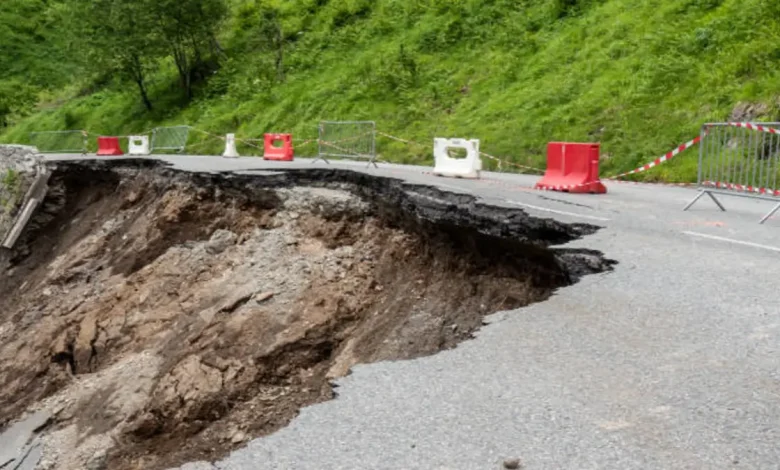
Gauteng, the economic engine of South Africa, is grappling with a growing road infrastructure crisis as illegal mining continues to destabilise the province’s already fragile geology. Roads, bridges, and even entire sections of land are collapsing due to extensive underground erosion caused by unauthorised excavation activities.

Crumbling Foundations Beneath Gauteng
At the heart of the crisis are abandoned gold mines that stretch for kilometres beneath Gauteng’s surface. Originally excavated by legitimate mining operations, these tunnels were left with structural support systems designed to maintain underground stability. However, illegal miners known locally as Zama zamas have returned to these shafts in search of trace amounts of gold still hidden in the rock.
In their pursuit, Zama zamas frequently dismantle the vital support pillars, hollowing out large sections of ground. This reckless activity has turned many of these tunnels into subterranean hazards, increasingly causing the land above to collapse without warning.
A report by the University of Pretoria documented more than 3,000 incidents of land subsidence and sinkholes across the province. Specific areas like Springs and Brakpan in the East Rand have witnessed severe cases, with roads and bridges literally falling apart. Notable examples include sinkholes on Rondebult Road, Snake Road, and along the N12 highway, critical routes for regional traffic.
Not Just Sinkholes—It’s Tunnels Beneath Roads
Security expert Marius van der Merwe has warned that these incidents go beyond typical sinkholes. “It’s not even a sinkhole in the traditional sense,” he explained. “It’s a tunnel right beneath the road surface that’s been hollowed out. And it’s happening in multiple places at the same time.”
Central Johannesburg has also felt the impact. Parts of the Eloff Street extension have caved in twice, largely due to compromised underground stability. Many of these areas are now no longer in use due to the threat of collapse.
The Zama Zama Economy
An in-depth investigation by The Citizen revealed the inner workings of illegal mining sites. Deep inside the tunnels, investigators found abandoned mining gear, clothing, food remnants, and makeshift tools. Among the more concerning innovations are pandukas, homemade rock-crushing devices powered by electric gate motors. These crush the rock extracted from underground shafts in search of gold dust.
The process, however, produces waste laced with toxic substances like mercury and cyanide. Water used to clean the crushed rock carries this contaminated slurry into local groundwater systems, posing a long-term environmental and health risk to surrounding communities and wildlife.
A Violent and Embedded Network
Efforts to stop illegal mining are fraught with danger. Zama zamas are known to be fiercely territorial and have responded with violence when confronted. In some areas, entire support communities have sprung up to serve these operations.
One such settlement near Putfontein in Benoni includes informal businesses, fast food stalls, and even childcare centres all operating in plain sight of the public and authorities. These communities form part of an underground economy that thrives despite the legal and environmental implications.
A Province on the Brink
The growing number of road collapses signals more than just infrastructure decay; it underscores a deeper crisis of governance, law enforcement, and environmental oversight in Gauteng. As the province continues to bear the economic weight of the country, unchecked illegal mining is quickly becoming an existential threat to its stability, safety, and future development.
Until serious intervention takes place both on the ground and beneath it the very roads that connect Gauteng’s people and industries will remain at risk of vanishing beneath their feet.
Related article: Pothole Relief in Sight: Johannesburg Roads Set for Major Improvements


